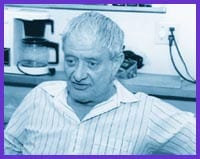There’s no such thing as private child pornography, because someone might steal it from your home or pick it up while wandering through, a lawyer for the government of British Columbia told the Supreme Court Of Canada this month.
As such, even possessing your own personal sketches of child sex should be illegal, argued attorney John Gordon during the Jan 18 and 19 marathon hearing into the constitutionality of the kiddie porn possession law.
Under questioning from Madam Justice Claire L’Heureux-Dubé, Gordon said private child porn should be illegal because the risk of it becoming public must be presumed.
It was the start of a trend of attempting to show one crime (possession) as bad because another one (distribution) is bad, too.
Asked later whether someone should be prosecuted for a graphic sketch someone else stole from their home, Gordon said yes: “It’s a risk inherent to the production.”
Saying a private collection is used to “groom and urge” pedophiles, Gordon said child pornography must be assumed to have an affect on others, even if it’s kept privately.
Seven other governments, including Ottawa and Queen’s Park, also lined up to convince the court to keep simple possession of child pornography – even sketches involving no real children – illegal. A British Columbia court had earlier ruled that banning simple possession contravened the Canadian Charter Of Rights And Freedoms in the case against Vancouver resident John Robin Sharpe.
Distributing child porn and involving children in its production will remain illegal no matter what the court decides.
If the first argument is to succeed, the law must be broad. Thus, governments argued the very existence of child porn is harmful and private possession should be illegal.
On the other side, advocates say erotic works of imagination, such as a sketch or story, are the products only of thought, causing the BC court to call the law “one step removed from criminalizing simply objectionable thoughts.”
“This is thought control,” echoed Sharpe’s lawyer Richard Peck.
Those trying to uphold the law said children’s rights trump all. The federal government’s Cheryl Tobias said: “We ought not to sacrifice children at the altar of the charter.”
The second argument used is that in order to catch the guilty, some innocents will unfortunately have to be charged. But don’t worry, separating the innocent and guilty will all come out in the wash.
Said Gordon: “If you excuse the apparently lawful, you lose the ability to capture the unlawful.”
Justice Frank Iacobucci responded that it’s not fair to subject someone to a child porn charge and then think it’s okay if they’re not convicted. This is especially true given the public’s hatred of pedophiles, he said.
The Canadian Police Association told the court: trust us. They won’t misuse the law and even if they do, prosecutors won’t follow through. The association’s lawyer compared erotic drawings with Paul Bernardo’s videotapes showing the rape and murder of two women.
Canadian Civil Liberties Association lawyer Patricia Jackson noted police told the public to trust them when the law was first passed in 1993, promising not to go after works of art, for example.
The first well publicized charge laid under the law was against a Toronto art gallery.
The court did not set a date for its decision.
Lawyers for the federal government and the provinces appeared – Ontario, Quebec, Nova Scotia, Manitoba, British Columbia, New Brunswick and Alberta. Also appearing were the Canadian Police Association, the Evangelical Fellowship Of Canada, and the children’s group Beyond Borders. Those arguing that the law is too broad included the BC and Canadian civil liberties associations and the Criminal Lawyers’ Association.

 Why you can trust Xtra
Why you can trust Xtra


